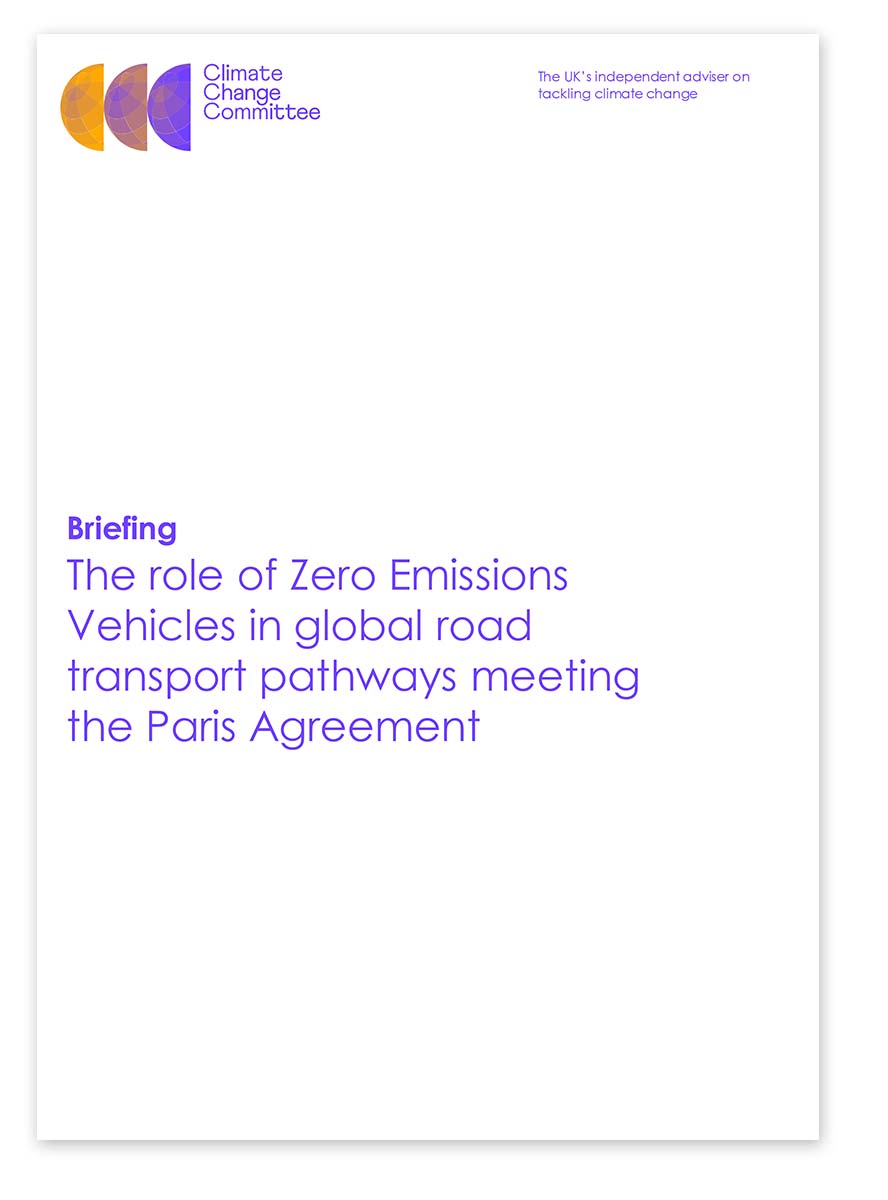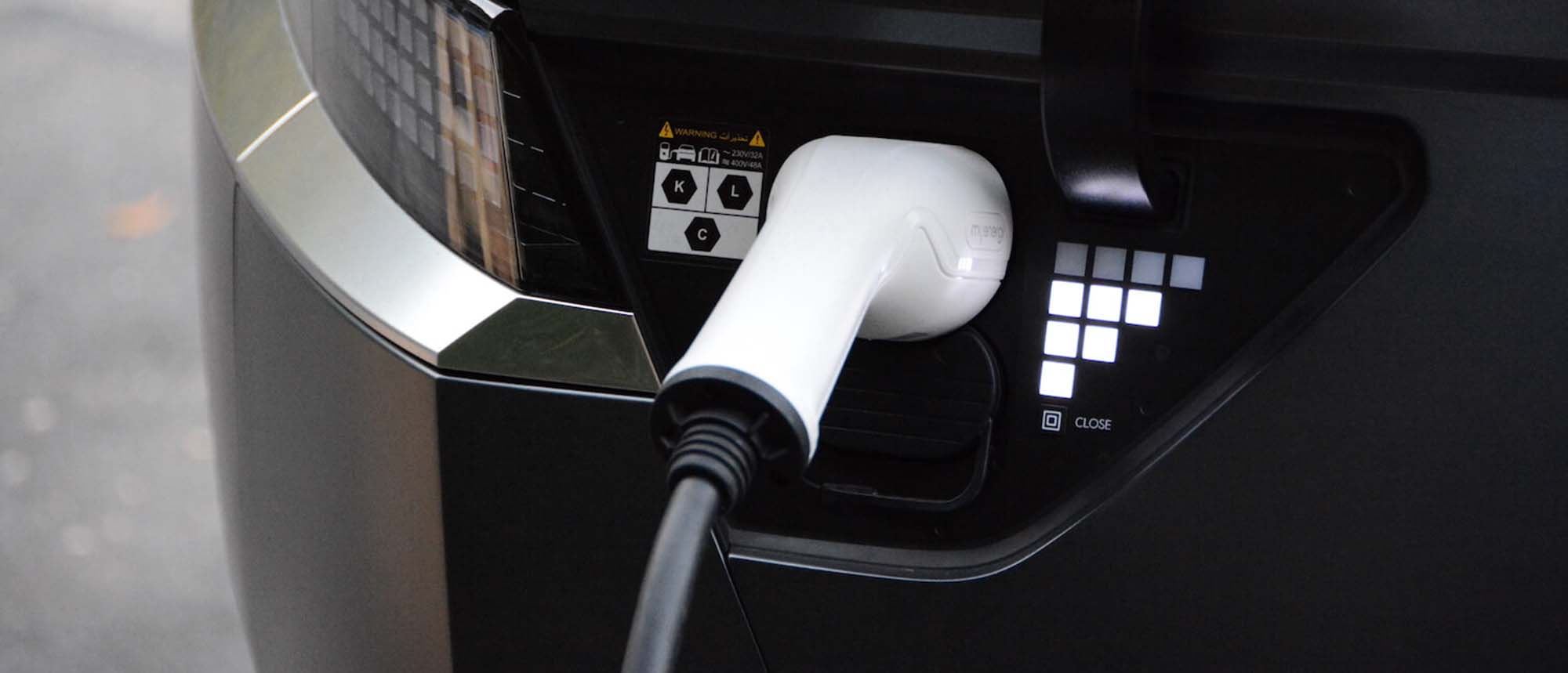The Climate Change Commitee Insights Briefing sets out evidence on the role of Zero Emission Vehicles (ZEVs) – fully electric vehicles – in international pathways for meeting the Paris Agreement long-term temperature goal of limiting global temperature increase to well below 2°C, while pursuing efforts to limit the increase to 1.5°C. It was also prepared to support the Zero Emission Vehicle Transition Council.
 The briefing highlights that rapid transition to a ZEV fleet can be one of the largest contributors to the global economy-wide emissions reductions required to deliver the Paris Agreement — with substantial co-benefits such as improved air quality. Moreover, transitioning new sales of all cars and vans to ZEVs by 2030-2040 is the least cost pathway for most regions, cheaper than continued sales of fossil fuel vehicles, due to the rapid continuing fall in battery costs and greater efficiency of ZEVs over fossil fuelled vehicles.
The briefing highlights that rapid transition to a ZEV fleet can be one of the largest contributors to the global economy-wide emissions reductions required to deliver the Paris Agreement — with substantial co-benefits such as improved air quality. Moreover, transitioning new sales of all cars and vans to ZEVs by 2030-2040 is the least cost pathway for most regions, cheaper than continued sales of fossil fuel vehicles, due to the rapid continuing fall in battery costs and greater efficiency of ZEVs over fossil fuelled vehicles.
- Achieving the Zero Emission Vehicle transition will require significant global investments in battery production, electric vehicle charging infrastructure and new power generation and development of ethical new supply chains for sourcing battery raw materials in the 2020s.
- Global cooperation on technologies and standards is needed to facilitate this and ensure that the scale-up is sustainable.
- Governments have an essential and important role to play to address challenges in scaling up of ZEVs.
- Measures to provide clear signals to firms to invest in ZEVs and supporting infrastructure and in network and system capacity are needed in most regions.
Read more and download ‘The role of Zero Emissions Vehicles in global road transport pathways’ report
